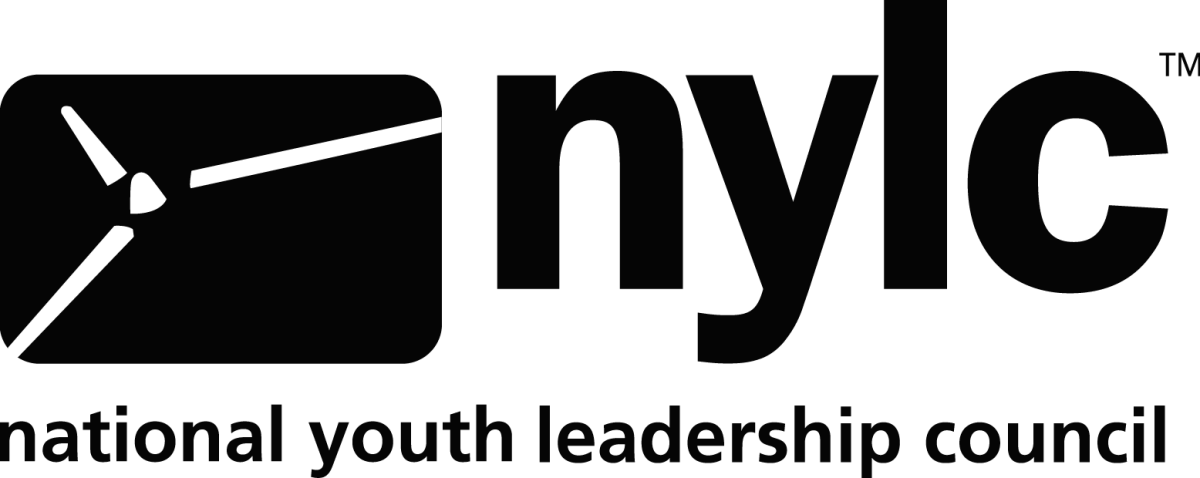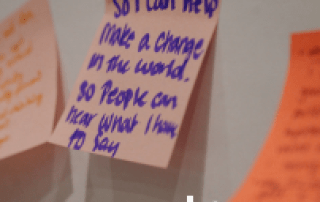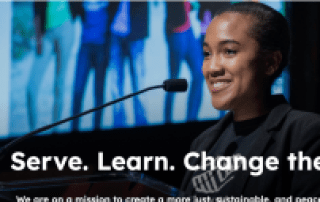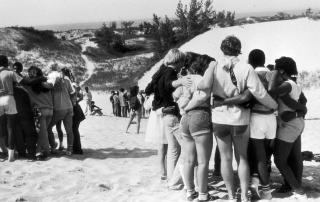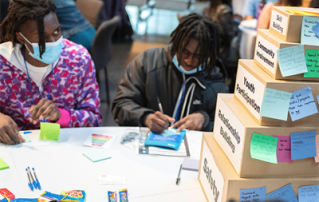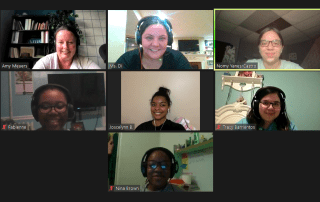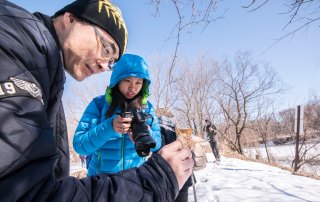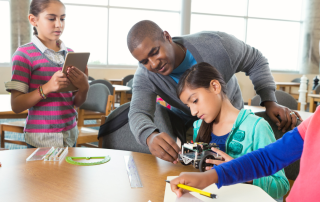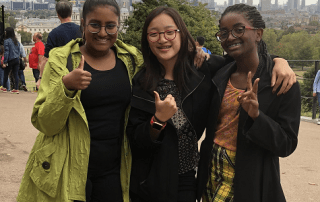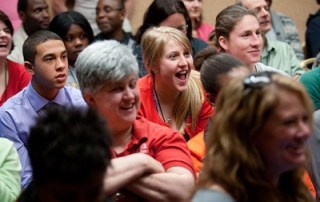Required Service-Learning Hours – What’s in it for Young People?
By: Julie Rogers Bascom, Director, Learning and Leadership High school students might be asking themselves the following: What’s an impressive amount of service hours? How many service hours do I need to be competitive in applying to college? What counts as service hours? These are the questions that came up when I googled “required service-learning hours.” This is what I’m wondering about: what are the outcomes we want for our young people as they engage in meaningful service-learning? I think service-learning can be transformational for a young person. When a student finds an issue or community problem they care about and [...]
National Youth Leadership Council Launches New Website to Empower Educators and Transform Communities
St. Paul, Minnesota - National Youth Leadership Council (NYLC), a leading service-learning organization, announced today the launch of its new website designed to empower educators and transform communities. The website, built with the latest technology and designed with educators in mind, provides a platform for educators to access a wide range of service-learning resources and support. "We are excited to launch our new website to better serve and empower educators to create service-learning experiences for their students," said NYLC’s CEO, Amy Meuers. "We value youth leadership and contribution and this new website amplifies the positive change youth are making [...]
Celebrating 40 Years of Generating Change!
On March 16, 1983, the National Youth Leadership Council (NYLC) was founded by Dr. James Kielsmeier to train young people to be servant leaders, originally in response to tension caused by court-mandated school integration. Students were coached to respond to racial injustices and utilize acts of service to create inclusion in their schools. NYLC’s original mission statement stated that “young people are necessary resources to society with inherent ideals, boundless energy and flexibility making them important co-creators and co-workers with older adults”. From this early start, NYLC has led a movement linking youth, educators, and communities to redefine the [...]
What’s your definition of youth voice?
Like many complex issues, understanding youth voice can be challenging and confusing. Is it young people speaking their minds? Is it youth addressing an issue they care about? Is it youth deconstructing systems that don’t serve them? Is it a graffiti mural in a community space? It’s all of the above. And more. What practitioners of service-learning can all agree on is that youth voice is centered in service-learning - in fact, it’s one of the standards of quality service-learning. Service-learning provides youth with a strong voice in planning, implementing, and evaluating service-learning experiences with guidance from adults. Consider these [...]
The M.I.N.D Project – A Reflection on Successful Service-Learning
By Christian Buonfiglio, Guest Writer Before graduating from the Foundation Academies’ Collegiate Academy, a public charter school in Trenton, New Jersey, each student must take a Civic Service-Learning course. Though the course is facilitated by English teacher Colleen DiDonato, the students, who are all in their junior or senior year, develop their service-learning projects together. This year, students from the course have led a service-learning project that has changed the lives of their fellow students -- and changed the school itself. One group of artists, athletes, and young leaders, led by then-junior Nomy Yanes-Castro, all saw the same need in [...]
Parents and Teachers Agree: We Must Prepare Students to be Active Members of our Communities
Parents and teachers agree that social and emotional learning (SEL) and service-learning have a reciprocal, mutually reinforcing relationship. Service-learning offers students real-world experiences that connect classroom learning to life, broaden perspectives, deepen social awareness, and connect actions to the needs of communities. However, only one in 10 teachers believe their schools are very successful at developing students’ ability to apply knowledge to real-world situations and their SEL skills. In order to address this, we need to strengthen service-learning and SEL opportunities together. The new report Ready to Engage, from Civic and Hart Research Associates, argues for expanding student opportunities like service-learning, promoting SEL and [...]
Acceptable Evidence: What Does What Look Like?
By Julie Rogers Bascom, NYLC Director of Learning & Leadership Stage two in the service-learning process, determining acceptable evidence, is an often-overlooked stage in quality service-learning. In the classroom, it can be an “automatic” part of the practice. We connect acceptable evidence to formative (ongoing and more informal quizzes, observations and exit tickets) and summative formal and structured assessments. In out-of-school programs, we also can and must look at what we hope young people will know and be able to do as a result of the service-learning experience. If your desired outcome is a specific content standard, tests and other assessments can [...]
Tennessee Expands Service-Learning in Afterschool
By Julie Rogers Bascom, NYLC Director of Learning & Leadership NYLC supports 14 states in the Statewide Afterschool Network with technical support, coaching, grants, trainings, and resources to develop or expand service-learning in afterschool programs in their state. These selected networks work collaboratively with each other and NYLC so that service-learning becomes a sustainable and systematic part of afterschool learning. During the cohort’s monthly call in February, Mary Graham, Lead for Tennessee’s Afterschool Network (TAN), shared insight into how she supports, grows and uses service-learning as a strategy to bring benefits to Tennessee’s youth and youth workers. Wearing multiple hats, [...]
Connecting Girls Across the World to Change the World
By Christian Buonfiglio, Guest Writer Daisy Leonard and her sisters, Coco and Sunny, have problems of global importance to solve. Racial and religious hatred, the decline in the mental health of young people, and the marginalization of girls drove them to create Dynamic Champions of Sisterhood, an online reading club that connects girls from all over the world to help them build confidence, challenge old ideas, and change the world. The Leonard sisters created DCS with funding provided by the Points of Light Foundation, a nonprofit dedicated to engaging with people from all walks of life to help the world [...]
Twenty Teams Receive Project Ignition Grants to Promote Safer, Smarter Driving
ST. PAUL, Minn. (August 19, 2019) – Coordinated by the National Youth Leadership Council® and funded by The National Highway Safety Traffic Administration, Project Ignition has selected 20 teams from throughout the United States to receive $1,000 service-learning teen driver safety grants in 2019. According to the National Highway Traffic Safety Administration, auto crashes are the number one cause of death for teens in this country. Project Ignition is a youth-led response that connects academic goals to address the issue of teen driver safety through service-learning. The grants will support student-designed and student-led campaigns aimed at preventing car crashes in their community. “Young people [...]
